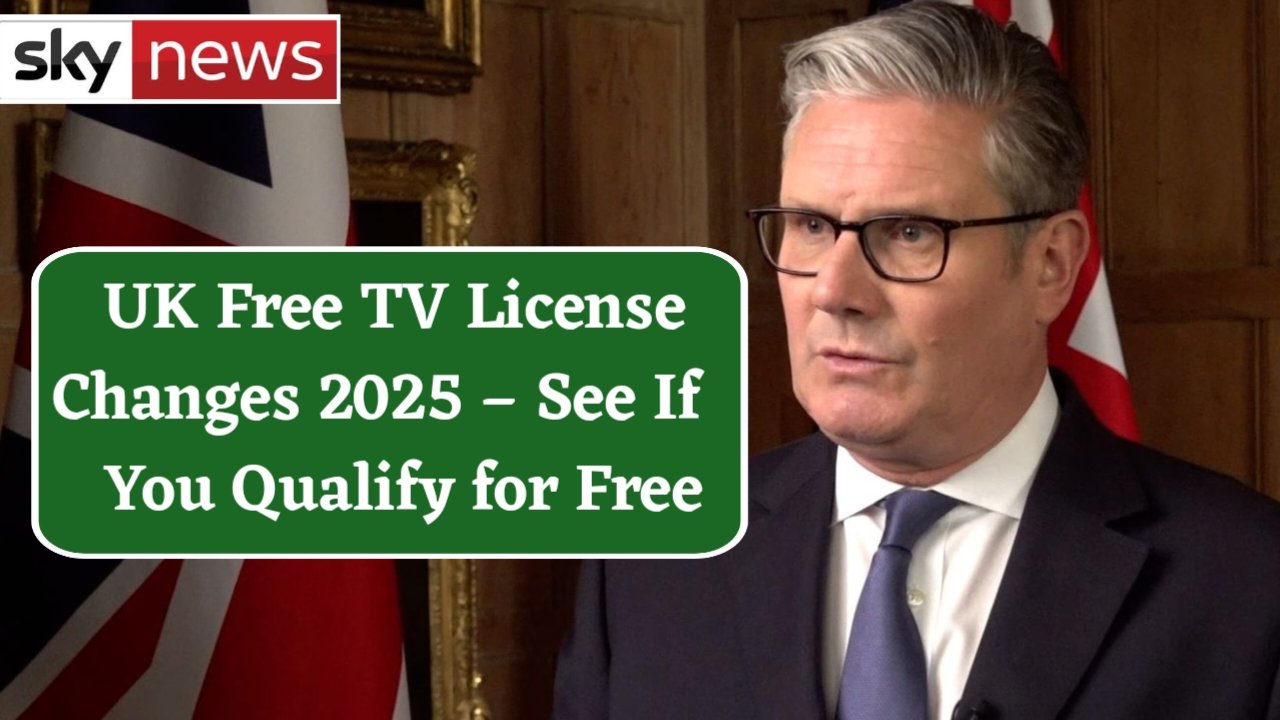The UK government has confirmed major updates to the Free TV License scheme in 2025, and these changes are sparking widespread discussion both in the United Kingdom and abroad. For Canadian readers who follow global policy updates or have family members living in the UK, understanding these changes is important because they directly affect millions of pensioners and low-income households. The TV License, which funds the BBC, has always been a point of debate, and with these new rules, eligibility criteria are shifting once again. If you are wondering whether older adults or low-income groups can still enjoy free access to television without additional fees, this article breaks down everything you need to know about the new guidelines.
What Is the UK Free TV License and Why It Matters
The TV License is essentially a mandatory fee required for anyone in the UK who watches or records live television or uses the BBC iPlayer service. For decades, the Free TV License program has been a way to support pensioners, especially those aged 75 and above. In the past, all seniors in this age group automatically qualified for a free license, but in recent years the rules have become stricter. The government and BBC have argued that funding challenges require adjustments, and 2025 brings yet another wave of changes. For Canadians, this may feel unusual because broadcasting here is primarily funded differently, but in the UK, this license fee has been a cornerstone of public broadcasting for generations. UK Free TV License Changes 2025

The 2025 Changes Explained
From 2025 onward, the Free TV License will no longer apply universally to everyone over the age of 75. Instead, it will be means-tested, which means eligibility will depend on income and financial circumstances. Pensioners who are receiving Pension Credit, a UK government benefit designed to support low-income retirees, will continue to qualify for a free TV License. However, those who have savings above a certain threshold or who do not qualify for Pension Credit will need to pay the annual license fee, which currently stands at £159. For families in Canada with elderly relatives in the UK, this could mean that grandparents or loved ones might lose a benefit they previously relied on.
Who Qualifies Under the New Rules
Under the updated scheme, only pensioners who are receiving Pension Credit will automatically qualify for a free TV License. This change is crucial because not everyone who is eligible for Pension Credit actually claims it. Research shows that thousands of seniors in the UK miss out on this support simply because they don’t apply or are unaware of their eligibility. As a result, many older adults could end up paying the license fee unnecessarily. For Canadians reading this, it highlights an important lesson: when government programs shift toward income-based benefits, ensuring that eligible individuals are informed and encouraged to apply becomes more important than ever.
Impact on Pensioners and Families
The most significant impact of this policy is financial strain on seniors who live on fixed incomes but do not qualify for Pension Credit. While £159 a year may not seem overwhelming, for many pensioners it represents a real burden. Families, both in the UK and abroad, often help cover these costs, but with rising inflation and living expenses, even small additional fees can add up. Canadian families with relatives in the UK may need to prepare for conversations about budgeting, financial assistance, or helping elderly parents and grandparents apply for benefits that will secure their eligibility for free TV access.
Comparing UK and Canadian Broadcasting Policies
For Canadian readers, it is interesting to compare this with Canada’s broadcasting policies. In Canada, there is no direct equivalent to a mandatory TV license. Public broadcasters like CBC are funded primarily through taxation and government support, which means seniors here do not face additional fees to access public programming. The UK model, however, places responsibility on households to directly fund the BBC. This fundamental difference is why changes like the 2025 reforms are so impactful in the UK and make international headlines. Understanding these contrasts helps Canadians appreciate how broadcasting policies affect daily life abroad.
What Pensioners Should Do Next
If you or your family members in the UK are aged 75 or above, the first step is to check whether they qualify for Pension Credit. Applying for this benefit can not only provide access to the Free TV License but also unlock additional financial support such as help with housing costs and council tax. Pensioners should contact the UK Pension Service or visit the official government website to confirm eligibility and submit an application if necessary. Canadian families can also play a role by guiding relatives through the online application process or ensuring they receive the right information to claim what they are entitled to.
Final Thoughts
The Free TV License changes in the UK for 2025 represent more than just a policy adjustment—they highlight the challenges governments face when balancing public service funding with fairness and affordability. For Canadian readers, this news is relevant not only because of the cultural ties between Canada and the UK but also because it serves as a reminder of how important it is to stay informed about government benefits, both at home and abroad. Families should take proactive steps to ensure that elderly relatives do not miss out on their entitlements and understand the financial impact of these changes. As the cost of living continues to rise, every small saving matters, and ensuring that seniors can continue to access television services without unnecessary costs should remain a priority.